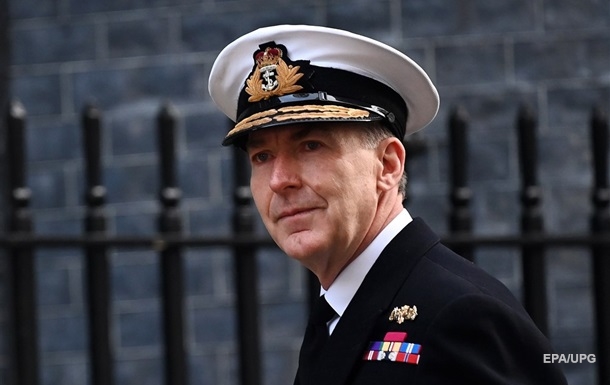London prepares soldiers for Ukraine: skies and ports under British shield
20 August 17:55
The United Kingdom is ready to send its troops to Ukraine to protect its airspace and sea lanes, but not to directly participate in the fighting at the front.The Guardian writes about this with reference to government sources, "Komersant Ukrainian" reports.
According to the newspaper, the Commander-in-Chief of the British Armed Forces, Admiral Tony Radakin, intends to inform his American colleagues about this during meetings at the Pentagon this week. At the talks, 30 partner countries are discussing specific proposals for security guarantees for Ukraine.
Initially, the idea of sending up to 30,000 troops to protect key Ukrainian facilities was considered, but this plan was later scaled back due to objections from a number of European countries. Currently, the focus is mainly on logistical and training support, as well as strengthening the air defense system and protecting seaports that are strategically important for Ukrainian grain exports.
One British official emphasized that August 20 will be a key date, as any decisions in Washington are made only with the consent of U.S. President Donald Trump. His public support for security guarantees for Ukraine a few days earlier, according to the interlocutors, “triggered a lot of activity” among the allies.
Last week, British Defense Secretary John Healey confirmed that London is ready to send troops to Ukraine “to maintain safe skies and seas and strengthen Ukrainian forces.” It is emphasized that this is not a question of sending combat battalions to the line of contact with Russian troops.
European diplomats consider the current steps an important step towards a possible peace agreement between Ukraine and Russia. British Prime Minister Keir Starmer emphasized that peace is possible only if the United States and its allies provide security guarantees.
At the same time, some experts are skeptical about the Kremlin’s willingness to agree to even a limited deployment of NATO forces in Ukraine. They see discussions around this initiative as a way to further isolate Vladimir Putin internationally.
London insists that the preparations are very real. “You won’t see 30 chiefs of staff in the Pentagon if they are not seriously preparing for this,” the source emphasized.
Britain and Ukraine: the evolution of military support
Since the beginning of Russia’s full-scale invasion in February 2022, the UK has been among Ukraine’s key allies.
🔹 Weapons and equipment. London was the first to decide to transfer modern Western Challenger 2 tanks and Storm Shadow cruise missiles to Ukraine. It also transferred air defense systems, armored vehicles, artillery, drones, and hundreds of thousands of rounds of ammunition.
🔹 Training of the Ukrainian military. Back in 2015, the British Operation Orbital program was launched, under which more than 22 thousand Ukrainian military personnel were trained. In 2022, it was expanded to the international Operation Interflex, where instructors from the UK and allied countries train Ukrainian soldiers on British territory.
🔹 F inancial support. The UK is one of the three largest donors to Ukraine among European countries. The total amount of military and financial assistance exceeded £12 billion (over $15 billion).
🔹 S anctions and political support. London was one of the first to impose tough sanctions against Russia, freezing the assets of the Central Bank of Russia, oligarchs and companies. The British Parliament has repeatedly adopted resolutions recognizing Russia’s crimes in Ukraine as war crimes and acts of genocide.
🔹 S ecurity guarantees. In January 2024, the United Kingdom was the first to sign a 10-year security partnership agreement with Ukraine, which provides for military, intelligence and economic assistance even after the war ends.
Thus, the current statements about the possibility of sending British troops to protect Ukrainian skies and ports are a logical continuation of London’s longstanding line of support for Kyiv, although British officials have previously emphasized that NATO troops will not be directly involved in hostilities at the front.









